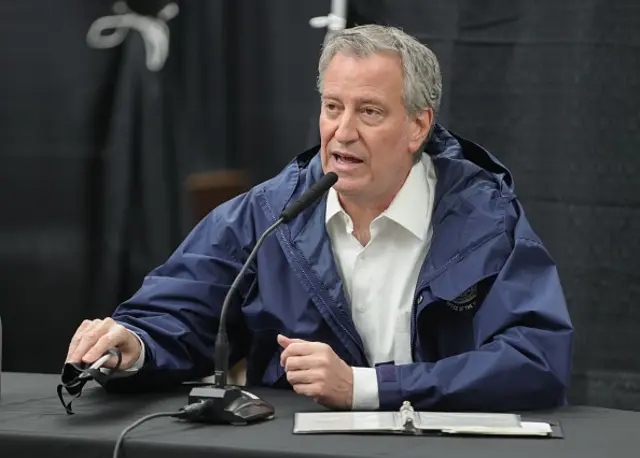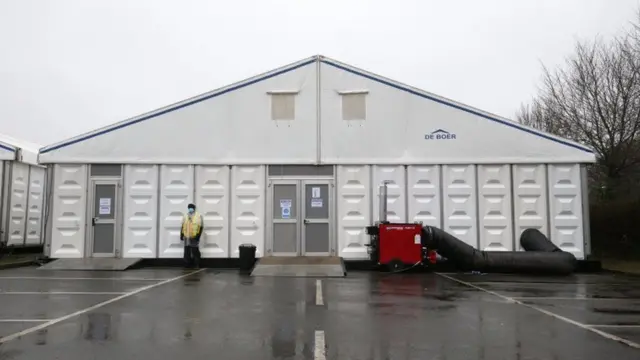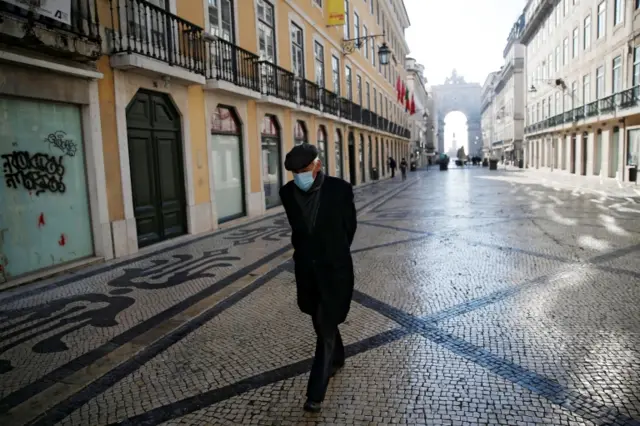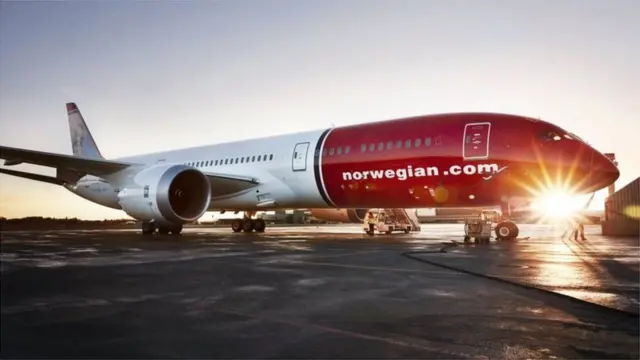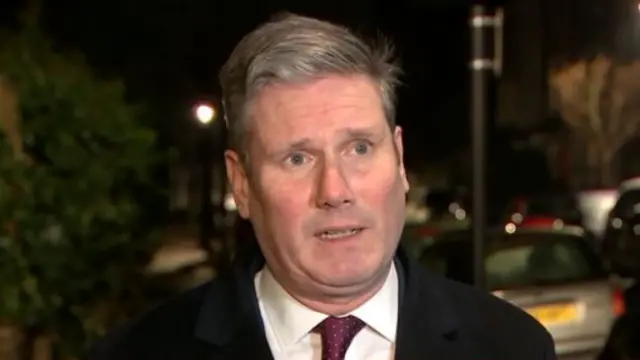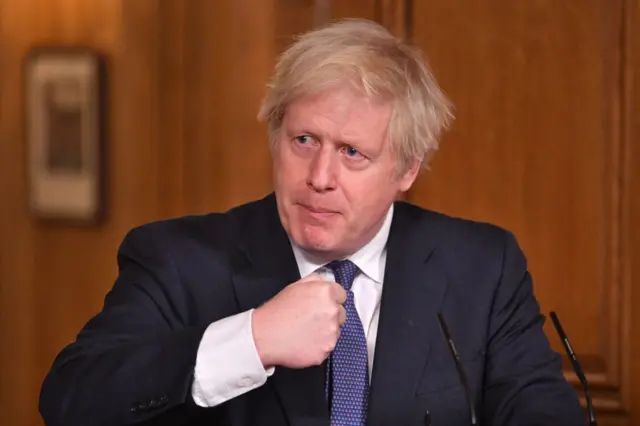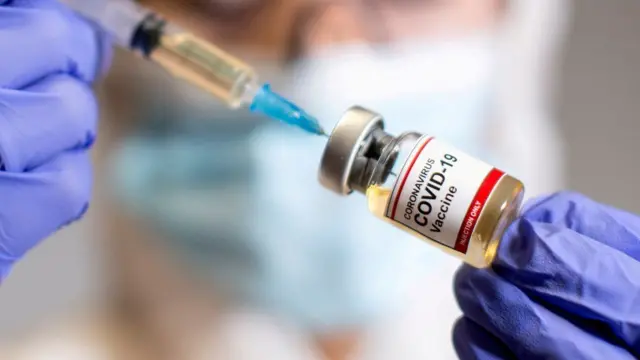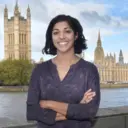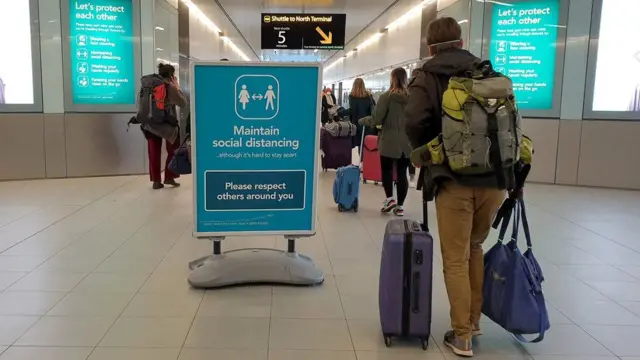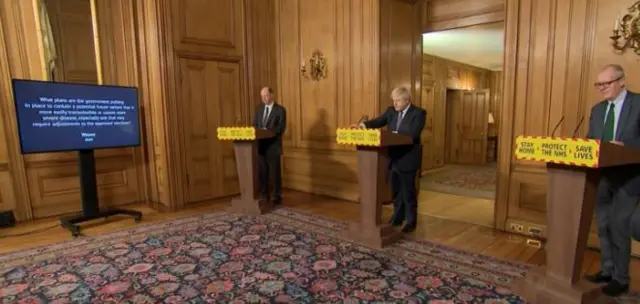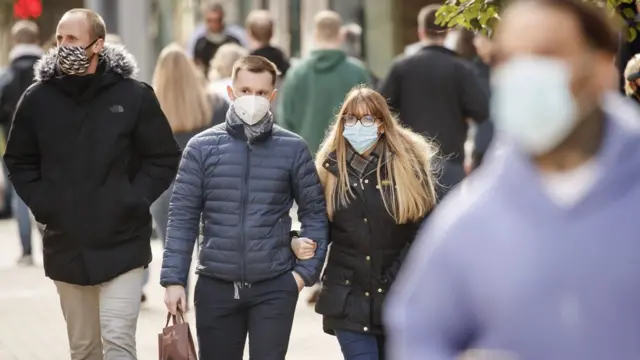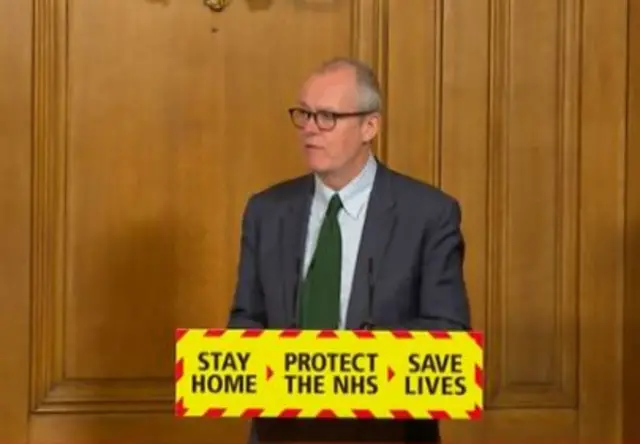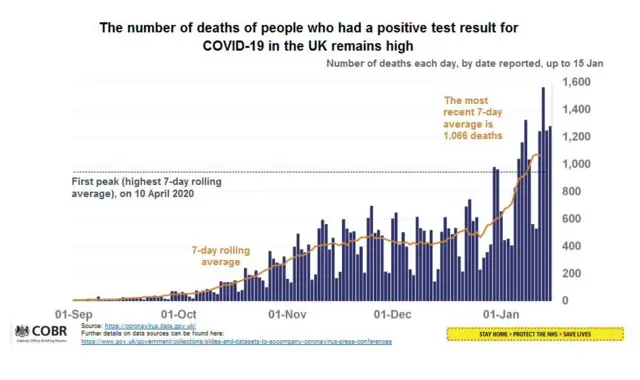What's been happening around the UK?published at 18:31 GMT 15 January 2021
We are going to be closing the live page soon so here's a recap of today's coronavirus headlines:
- UK Prime Minister Boris Johnson held a press conference where he announced all travel corridors will be closed from Monday for a month to protect the UK against new variants of Covid
- People arriving in the UK must show a negative test and quarantine for 10 days or test negative again after five days
- Deaths will continue to rise into next week because there are more people in hospital with Covid than ever, says Prof Whitty
- The number of cases are "extremely high" but are "levelling off", he says
- Meanwhile, a leading scientist says one of two coronavirus variants first detected in Brazil has been found in the UK - but not the variant that is causing concern
- Hospitals in the Brazilian city of Manaus have reached breaking point while treating Covid-19 patients, amid reports of severe oxygen shortages and desperate staff
- Globally, more than two million people have now died of Covid-19 since the pandemic began, according to Johns Hopkins University.
That's all from the live team but we will be back tomorrow.
These updates were brought to you by Jasmine Taylor-Coleman, Sarah Collerton, Vanessa Barford, Emma Harrison, George Wright, Doug Faulkner, Jennifer Meierhans, Victoria Bisset and Joshua Cheetham.
